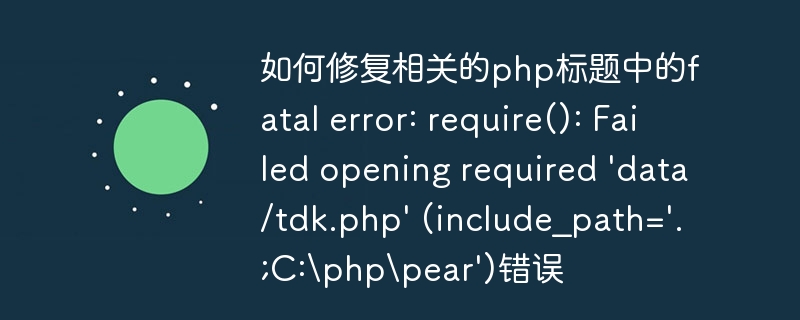

How to fix Fatal error in related PHP header: The file 'data/tdk.php' that needs to be opened failed (including path='.;C:phppear')
When using PHP to develop websites, we may encounter various errors and exceptions. One of the common errors is "Fatal error: The file required to open... failed". This article will focus on the specifics of this error and how to fix it.
First, let’s understand the cause of this error. When a PHP script is executed to a location that needs to include or import other files, the require or include commands are used. These commands tell the PHP engine to load the specified file within the current file. In our example, the error message shows "The file 'data/tdk.php' that needs to be opened failed", which means that PHP cannot find and load the tdk.php file in the data directory.
Here's how some experienced developers solved this error:
To sum up, fixing the "require(): Failed opening required 'data/tdk.php'" error in the PHP header requires carefully checking the file path, using absolute paths, checking file permissions and encoding method, and check the error log for more information. Through these methods, we are often able to resolve file loading errors and other PHP errors and ensure that our scripts are running properly.
The above is the detailed content of How to fix fatal error: require(): Failed opening required 'data/tdk.php' (include_path='.;C:\php\pear') error in related php headers. For more information, please follow other related articles on the PHP Chinese website!
 How to use require
How to use require
 direct3d function is not available
direct3d function is not available
 How to decrypt bitlocker encryption
How to decrypt bitlocker encryption
 What does ps mask mean?
What does ps mask mean?
 Introduction to service providers with cost-effective cloud server prices
Introduction to service providers with cost-effective cloud server prices
 Can program files be deleted?
Can program files be deleted?
 How to remove the first few elements of an array in php
How to remove the first few elements of an array in php
 How to solve the 504 error in cdn
How to solve the 504 error in cdn




